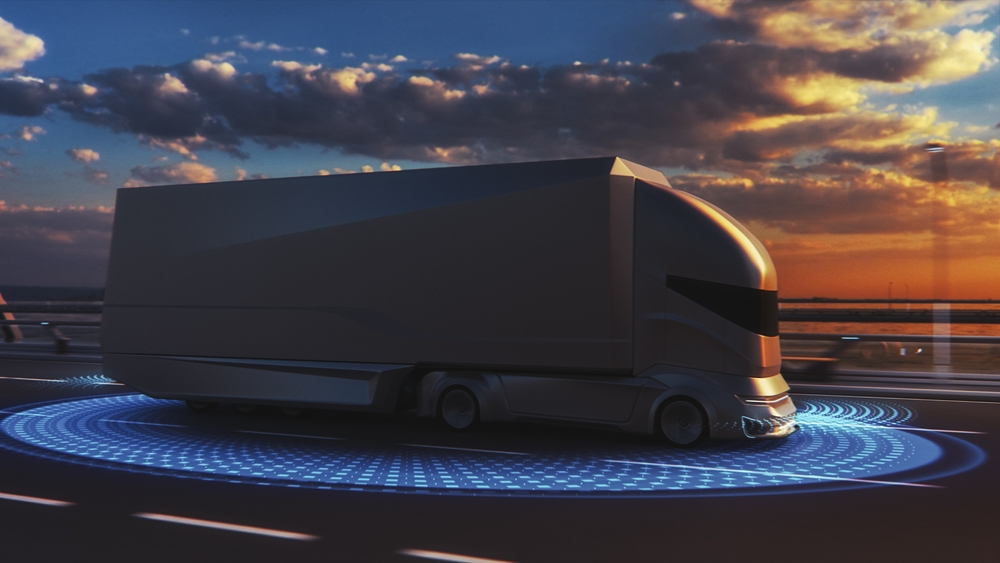The commercial adoption of autonomous trucks is gaining rapid momentum in 2024, addressing long-standing challenges in the trucking industry, according to a new IDTechEx report.
With autonomous technology evolving quickly, the trucking sector stands on the brink of a significant transformation.
The emergence of advanced Level 4 (L4) autonomous driving systems is expected to reshape global logistics, making transportation safer, more efficient, and less reliant on human drivers.
Benefits of autonomous trucks
The rise of automated trucks offers numerous benefits for the trucking and logistics industry. One of the primary advantages is cost savings, as these trucks optimise fuel efficiency, reduce driver fatigue, and minimise the need for human operators.
This is particularly significant in the context of a global driver shortage, offering a solution by allowing human operators to transition into supervisory roles.
Safety is another key benefit. Autonomous systems can help reduce accidents caused by human error, enhancing the overall safety of long-haul transportation.
Additionally, the integration of autonomous electric trucks contributes to sustainability efforts, reducing emissions and making logistics greener and more efficient.
Driving commercialisation
In 2024, the commercialisation of autonomous trucks has taken off, marking a turning point for the industry.
According to IDTechEx, which has analysed over ten companies in the sector, this new phase is being driven by collaborations between autonomous driving technology firms, Original Equipment Manufacturers (OEMs), and logistics companies.
Startups are increasingly retrofitting trucks with advanced autonomous systems, bypassing the challenges of mass production by leveraging OEM chassis and expertise.
This business model allows autonomous trucking companies to focus on software development while benefiting from OEM support.
It also represents a significant shift in how the industry operates, blending traditional manufacturing with cutting-edge technology to meet the growing demand for autonomous logistics solutions.
Regional policies and regulations accelerating growth
The global growth of autonomous trucking is being shaped by varying regulations and policies across key regions like the US, Europe, and China. Each region is navigating its unique challenges while fostering the development of autonomous transportation.
The US is at the forefront of autonomous truck development, with major regulatory bodies like the Federal Motor Carrier Safety Administration (FMCSA) and the National Highway Traffic Safety Administration (NHTSA) promoting safe deployment.

States like California, Texas, and Arizona are leading on-road testing with extensive pilot programmes.
However, the absence of a unified federal policy creates a fragmented regulatory landscape, making cross-state operations difficult for autonomous vehicles.
Industry leaders are calling for national legislation to streamline the development and deployment of autonomous trucks.
The Infrastructure Investment and Jobs Act passed recently seeks to address some of these challenges by investing in smart highways and dedicated testing facilities, although issues such as safety, liability, and public perception remain unresolved.
Europe’s focus on sustainability and cross-border integration
In Europe, autonomous trucking is advancing with strong regulatory support from the European Commission. The ‘Europe on the Move‘ agenda aims to establish a single framework for autonomous vehicle operations across the continent.
Countries like Sweden, Germany, and the Netherlands are leading the way, with Sweden’s Einride already running commercial operations using autonomous trucks.
The European Union’s emphasis on sustainability has led to a growing focus on autonomous electric trucks, aligning with broader efforts to reduce carbon emissions. However, regulatory discrepancies between Member States create challenges for seamless cross-border operations.
The European Commission is actively working to harmonise these regulations to ensure smoother integration across Europe.
China: A global leader in autonomous trucking
China is emerging as a leader in the commercialisation of autonomous trucks, thanks to strong government support and a centralised regulatory framework.
Cities such as Beijing, Shanghai, and Shenzhen have developed autonomous vehicle test zones, and companies like Inceptio and DeepWay are reaping the benefits of favourable policies, including subsidies and highway testing licenses.
China’s approach combines autonomous truck development with its broader goals of leading the electric vehicle and smart logistics sectors. Heavy investments in connected highways and dedicated charging stations are accelerating the deployment of autonomous trucks across the country.
As the technology continues to evolve, autonomous trucks are poised to revolutionise the future of global transportation, offering a smarter, safer, and more sustainable solution to the challenges facing the logistics industry.









